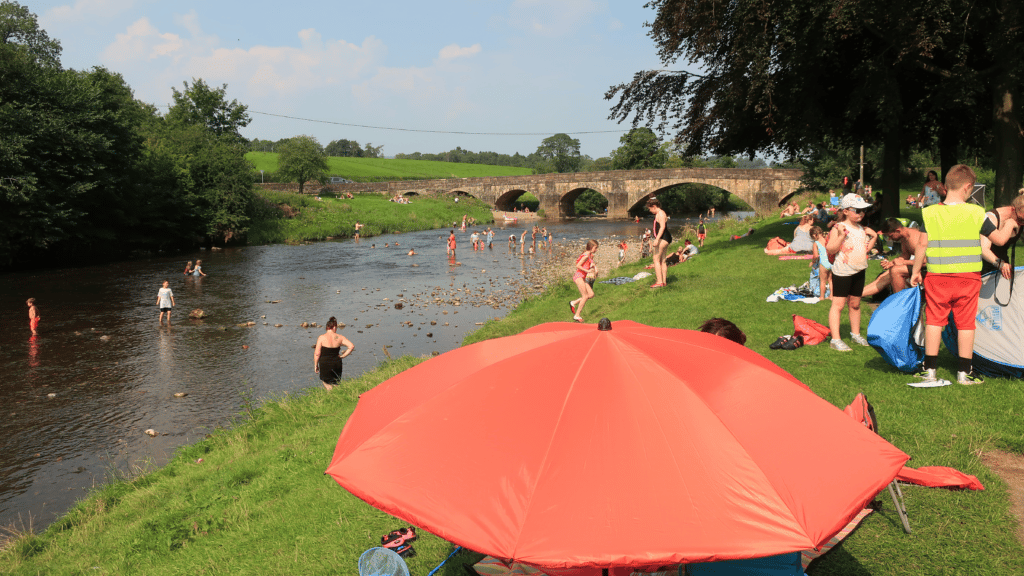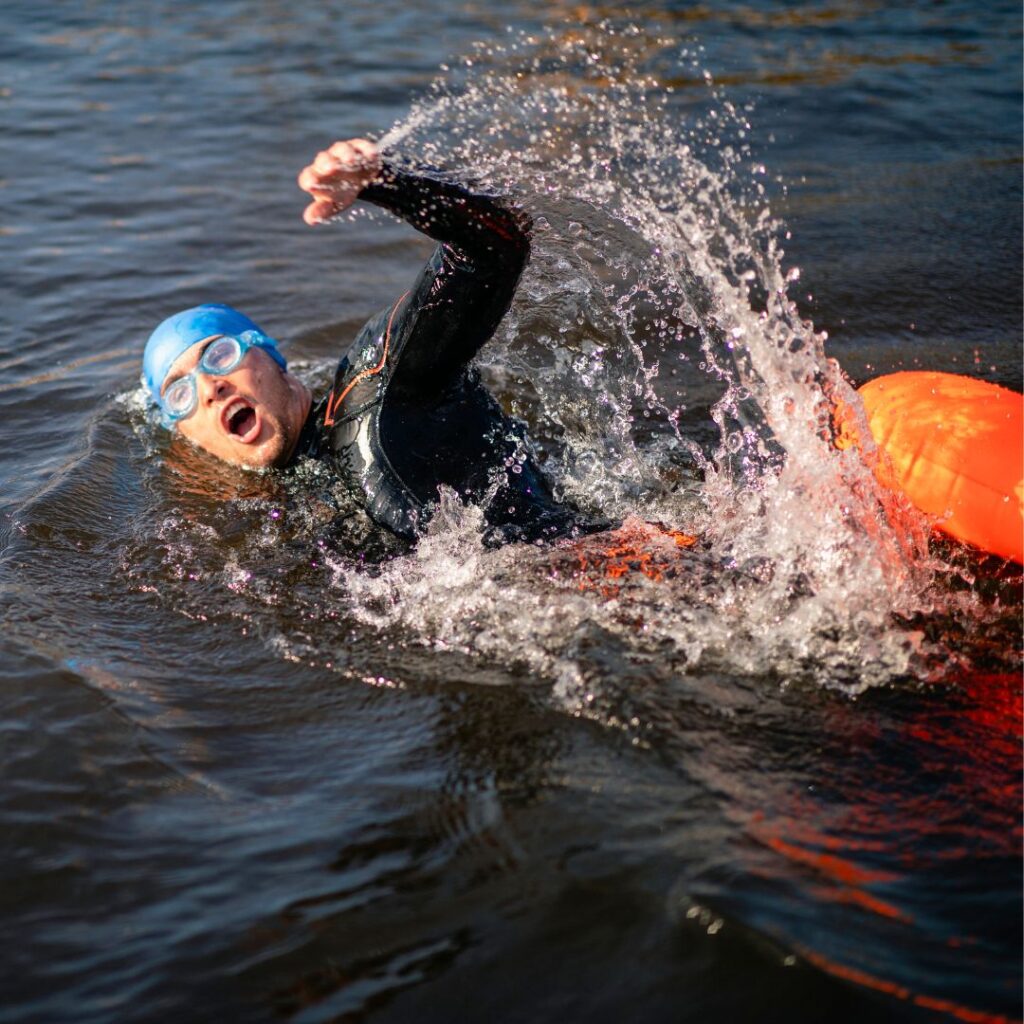Here in Lancashire, we’re pretty lucky when it comes to access to outdoor spaces. Although we get to enjoy these places all year round (for free!), our rivers, lakes, parks, and gardens really come to life when the sun is shining.

As a charity working to improve and promote the waters of the Ribble catchment, we want everyone to get outside and enjoy their rivers. From wild swimming to family picnics, fishing to kayaking, everyone has the right to enjoy the outdoors.
Of course, we want to make sure that everyone stays safe, and rivers can be dangerous places. It’s going to be scorching for the next week, and we know it’s going to be tempting to take a dip so please stay safe and remember- cold water shock kills.
Here are some water safety tips to help you stay safe this summer.
Swot up on your sites
Before you get in the water plan your entry and exit points so that you know you can safely get in and out of the water. It’s also important to check the weather, a sudden downpour upstream can mean rapidly rising river levels in some places so be prepared to cancel your plans even if it’s sunny outside. If you are swimming in the sea always check the tides and try to find lifeguarded beaches.
Bring a buddy and keep kids close
Giving your kids the chance to take calculated risks is all part of growing up and makes for great childhood adventures. But always keep youngsters close to you and close to the riverbank. Remember, in the water, silence is often a sign of danger rather than good behaviour. It’s a good idea to chat with older children and teenagers about water safety too, as you can’t keep them supervised forever!
Even for experienced water users, assigning a buddy to watch you, or even just to know where you are and what time you will be back is a simple way to guarantee your safety. Water sports are much more fun with someone else anyway!

Calculate the current
Before you enter the water always calculate the current. A really easy way to do this is to throw a stick in the water. If it moves faster than you can easily swim, it’s not safe. This is a handy trick for dogs too, but perhaps throw the stick whilst they’re not looking!
Don’t dive right in
Acclimatisation gives your body the chance to adjust to the water temperatures. Entering the water slowly and splashing water on your face and neck helps to prevent cold water shock. It’s tempting to hold your breath but try and regulate your breathing. Another reason not to dive in the water is hidden obstructions, jumping and diving in means you are more likely to hit an underwater object.
Watch out for weirs
To the average person a weir on a river is a peaceful site; a slow-moving pool of water with a miniature man-made waterfall flowing gracefully over it. However, underneath the water it’s a completely different story. Weirs generate huge amounts of turbulence, with water flowing back in on itself like a wave, which can easily trap a person. Plus, most weirs are on old industrial sites, so you never know what is lurking below the surface. Common hidden obstructions include walls, fallen trees, rock formations, weeds, and litter like shopping trolleys.
Get to know your fitness levels

If you are planning on swimming, paddle boarding, kayaking or canoeing you can get all the gear online, but does that mean you should? It’s best to find out what your fitness levels are like first. Visiting a water sports club, or even your local swimming pool is a great way to gauge how fit you are. You’ll then know whether you can manage a cold swim in flowing water, or if you’re best putting in some practice lengths to build up your skills. This can save you money too as many sports clubs let you use their equipment for free.
ALL THE GEAR IS A GREAT IDEA
Even in the sunshine it’s a good idea to wear a wetsuit. Neoprene gloves and shoes are great for keeping your extremities warm in colder weather and provide protection too. This means you can swim for longer and maintain a safe body temperature. Brightly coloured tow floats are also handy as they help you to stay visible and usually have the means to store phones and whistles in case you get into trouble. Make sure you have plenty of warm dry clothes for when you emerge too.
In an emergency
Float to live. Cold water shock can seriously affect your ability to breathe and move. If this happens to you don’t try to swim, relax and float until the shock passes, then call for help.
In an emergency, call 999. Ask for the coastguard if you are in the sea.
For more advice visit RNLI or the Outdoor Swimming Society.

